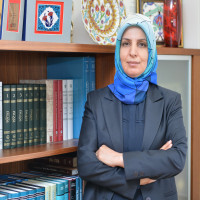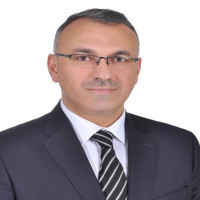Research Article
Issue Editorial Board



Aim & Scope
To increase research and compilation studies in accordance with the aim of "enlightening the society on religion" and the publication policy of the Presidency of Religious Affairs.
To support research and researchers in the field of theology.
To contribute to the academic world
To be able to shape the developments in the field
Our journal publishes academic articles in the following fields.
Basic Islamic Studies:
Tafsir, Hadith, Kalam, Islamic Law, History of Islamic Madhhabs, Arabic Language and Literature
Philosophy and Religious Studies:
Islamic Philosophy, Philosophy of Religion, Psychology of Religion, Sociology of Religion, Religious Education, History of Religions, Logic
Islamic History and Arts:
Islamic History, History of Islamic Arts, Turkish-Islamic Literature, Religious Music
Religious Culture and Moral Knowledge Education:
Author Guidelines
Ethical Principles and Publication Policy
ETHICAL PRINCIPLES AND PUBLICATION POLICY
The abbreviation PRA in this declaration refers to the Presidency of Religious Affairs, and the abbreviation DID to Diyanet Ilmi Dergi. Diyanet Ilmi Dergi is an academic journal published by PRA. The content of a published article does not necessarily represent the opinions of PRA or DID.
DUTIES OF THE PUBLISHER
Publication Principles: Diyanet Ilmi Dergi is an international academic and refereed journal published four times a year. Diyanet Ilmi Dergi Editorial Team meets periodically. Submitted articles are first pre-evaluated by the Diyanet Ilmi Dergi Editorial Team. Articles deemed suitable for refereeing are submitted to the referees for their opinion, and articles are published in the case of a positive opinion is received from both referees, and if the corrections and changes proposed by the referees are made. If one of the referees reports “publishable” and the other “unpublishable”, the article is sent to a third referee. If this third referee reports “unpublishable”, the article is rejected by the Editorial Team. If the third referee reports “publishable”, the article is moved to the editorial reading process after the evaluation and approval of the Editorial Team. The final publication decision of the articles sent to the Diyanet Ilmi Dergi with the request for publication is made by the Diyanet Ilmi Dergi Editorial Team.
Authors
Authors must have the academic title of doctoral student and above.
It is the author’s responsibility to ensure that the submitted article contributes to academic fields.
Plagiarism scan is made by the author and sent to the journal. The consequences of plagiarism belong entirely to the author.
The article should not be submitted to different journals at the same time and it should not have been sent to another journal before.
Other authors whose names will be included in the article must have contributed to the research. It is against the ethics of science to show people who have no academic contribution as additional authors or to rank authors with non-scientific criteria such as title, age and gender, regardless of the order of contribution.
It is assumed that the authors who submit articles to the journal have read and accepted the publication and writing principles of the journal, and the authors are deemed to have committed to what is expected of them in these principles.
Citations and references should be complete.
Authors should take into account the Scientific Research and Publication Ethics Directive, which is also specified by the Council of Higher Education.
Referees
Referees should act with the awareness that they are the most basic determinant of the academic quality of the article to be published in the journal and should evaluate them with the responsibility of increasing academic quality.
Referees should only accept reviewing of articles that they have the expertise to make an appropriate review, can respect blind review confidentiality, and keep the details of the article confidential in any way.
After the article review process, any information about the article reviewed should not be shared with others in any way.
Referees should only evaluate the accuracy of the content of the articles and their compliance with academic criteria. The fact that the opinions expressed in the article differ from those of the referee should not affect the evaluation.
Referee reports should be objective and restrained. Insulting, derogatory and accusatory expressions should definitely be avoided.
Referees should avoid superficial and ambiguous statements in evaluation reports. In the evaluations with negative results, the missing and defective points on which the result is based should be shown in a concrete way.
Referees should evaluate the articles within the time given to them. If they are not going to make an evaluation, they should report it to the journal within a reasonable time.
Editors
Editors should accept articles that contribute to the relevant fields specified in the journal policy into the evaluation process.
Editors should not have any relationship based on mutual interest or conflict of interest with accepted or rejected article authors.
It is the editors’ responsibility to keep the names of referees and authors mutually confidential.
Editors should make the necessary effort to examine the plagiarism screening report of the articles submitted for publication and thus to prevent academic dishonor.
It is the editors’ duty to complete the pre-examination, refereeing, editing and publishing processes of the articles submitted to the journal in a timely and healthy manner.
Editors should prioritize academic concerns and criteria when accepting articles to the journal.
Note: The ethical rules mentioned above have been prepared according to the directive of the Committee on Publication Ethics (COPE) at https://publicationethics.org/.
Price Policy
Dergimizde makale gönderim ücreti alınmamaktadır.
Diyanet İlmi Dergi is licensed under a Creative Commons Attribution-NonCommercial 4.0 International License (CC BY NC).



